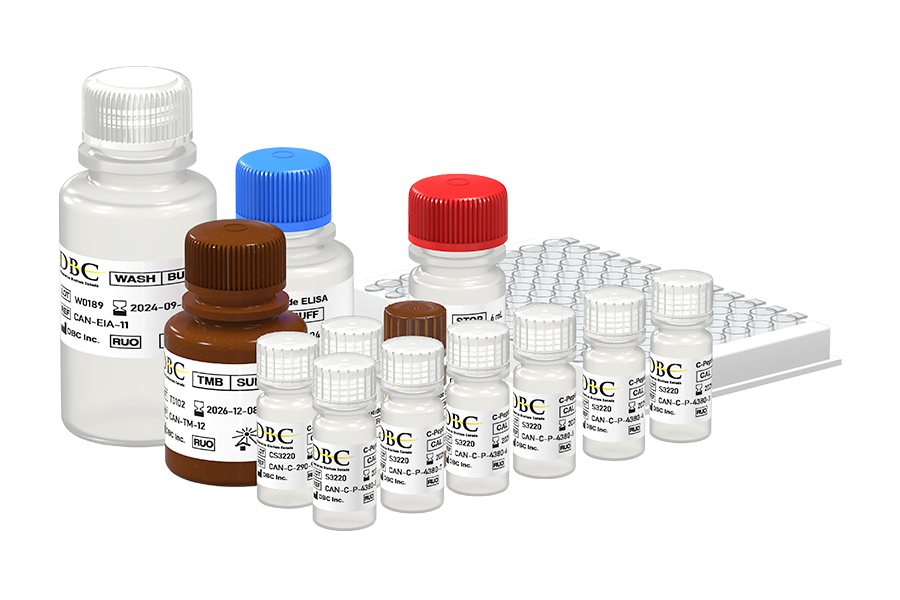
- CAN:

- EU:


- USA: For Research Use Only. Not For Use In Diagnostic Procedures.
The C-peptide ELISA is a one-step capture or ‘sandwich’ type immunoassay. The assay makes use of two highly specific monoclonal antibodies: A monoclonal antibody specific for C-peptide is immobilized onto the microplate and another monoclonal antibody specific for a different epitope of C-peptide is conjugated to horse radish peroxidase (HRP conjugate).
In the first incubation step, C-peptide present in the specimen samples, calibrators and controls is simultaneously bound by the immobilized antibody and the HRP conjugate antibody, thus forming a sandwich complex. Excess and unbound materials are removed by a washing step. Next, the TMB substrate (enzyme substrate) is added which reacts with HRP to form a blue coloured product that is directly proportional to the amount of C-peptide present. The enzymatic reaction is terminated by the addition of the stopping solution, converting the colour from blue to yellow. The absorbance is measured on a microplate reader at 450 nm. A set of calibrators is used to plot a calibrator curve from which the amount of C-peptide in specimen samples and controls can be directly read.
